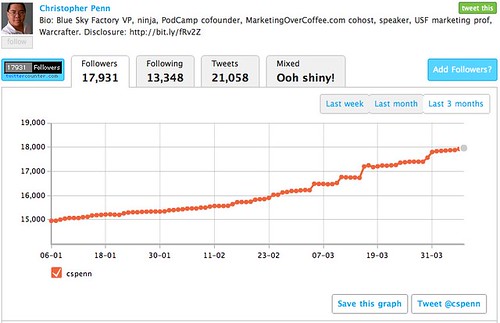One of the peculiar habits we have in our hyperactive, short attention span culture is the habit of looking for the big secret. We strive desperately to look for the next big thing, the next big secret, the magic wand that will make everything better. What we tend to overlook – or most of us, anyway – are the little secrets, the little hacks and tweaks you can make to your day, your year, your life to help things operate better.
Most of the little secrets aren’t secret at all, or at least not the knowledge portion. The mystery and power of the little secrets are entirely in the execution of said secrets.
I’ve put together just a few of mine, and would love it if you shared yours in the comments.
1. Take a multivitamin daily before bed. I learned this trick from a friend who said that since most of our body repairs – healing, growth, restoration – happens at night while we sleep, it only makes logical sense to have the proper tools on hand. I find that a multivitamin with a tall glass of water helps get the next day started on the right foot.
2. Get up early. There is an incredible amount of productive time before 9 AM. Thanks to a much shorter commute, I can afford the luxury of sleeping until 6 AM and still take advantage of the early morning hours when the phone isn’t ringing and the inbox isn’t flooding over.
3. Five minutes of spiritual practice daily. Whatever your thing is that refreshes your spirit and reaffirms the rightness and brightness of your presence in the world, do it daily without fail. Even with a nice short commute to work now, I still pack it in before I ever get to the office. For those so interested in my specific practice, go check out How To Own The World by Stephen K. Hayes.
4. Work out before the day starts. I’m one of those folks who just can’t get motivated to work out at night. Whether it’s stuff from the day, fun time with the family, or class, working out at night is draining rather than refreshing to me. Working out first thing in the morning before the day starts is what works best for me. Your mileage will vary, but try to pack 20 minutes of cardio in at least twice a week, if not more. Also, experiment with different kinds of fitness. I’m not wild about running but I love using elliptical machines. I suck badly at basketball but I’m an avid martial artist. Find your thing and do it often.
5. Wonder how I find the time to do as much as I do? No television. Very little general news beyond skimming the headlines and Bloomberg.com. I choose Bloomberg as a primary news source because most investors won’t put up with the useless BS in regular news about celebrities and what’s trendy. Investors want only the stuff that’s going to make them productive, and so do I. That may mean that I’m a fashion disaster and a cultural n00b, but I’ll be a productive fashion disaster, dangit.
6. Twenty minutes a day reading, first thing in the office. Long before the day gets started, I’m hitting my favorite marketing, sales, motivation, economics, and Warcraft blogs to see what’s shaking in the world from the ground level perspective. If you’d like to get a sample of what blogs I read, grab this OPML file from Marketing Over Coffee.
7. Twenty minutes a day creating, first thing in the office. After I’ve caught up on my reading, I create. I might blog, edit a photo, sketch some things in a notepad, but I take advantage of the quiet morning hours to create.
8. Daily review. Except on days when the Internet is fail, I sit down on Skype with my personal assistant someone and review my inbox, calendar, and items that need my attention so that important stuff for the day doesn’t get missed.
9. Coffee and water. It’s no secret at all that I drink a lot of coffee. What is kind of a secret is that I try to balance so that I drink twice as much water as I do coffee daily. It’s astonishing how much a single bottle of water (I keep a 1 liter refillable bottle on my desk) can make a difference in your energy level during the day.
10. Rigorous boundaries. I’m extremely selective in who I actually listen to, in what email is worth my time (see my contact form), and what can happen when. For example, I block out a certain part of my day with family that is inviolable. I leave my cell phone and laptop in my car, and there’s literally no way to reach me during that time. I don’t respond to about 95% of the non-work email I get, either. At this point in my life, time is the most valuable resource I have, and I’m stingy as hell.
11. Daily time with friends. I play World of Warcraft on a daily basis, not just for the fun of virtually crushing my enemies and leaving ashes and misery in my destructive wake (yay Death Knights!), but also because some of the best conversations of the day happen with my friends in guild chat. They’re the trusted folks I bounce things off of, listen to, and share advice with.
None of these secrets is going to be a game-changer for you. None of these secrets will instantly make you rich or powerful (with the exception of #5, because pop culture is a giant time suck), but cumulatively, all of these secrets contribute a little towards helping me do what I do.
Now here’s the next part, the important part. What are the little secrets that YOU use to get more juice for the squeeze (a John Wall trademark expression) out of your day, week, or life? Leave yours in the comments.
Did you enjoy this blog post? If so, please subscribe right now!



Get this and other great articles from the source at www.ChristopherSPenn.com! Want to take your conference or event to the next level? Book me to speak and get the same quality information on stage as you do on this blog.
 Gamers old enough to remember Ultima’s role playing game back in the 80s and 90s will remember one of the most treasured weapons of all, the glass sword. This powerful weapon was both incredibly strong and yet incredibly weak. It held one promise: use it on an enemy for a guaranteed kill, but shatter it in the process, rendering it useless. It was the ultimate one-shot weapon, and it was indeed a rare treasure that you’d only use when things got dire. Certainly, you’d never use it for something mundane.
Gamers old enough to remember Ultima’s role playing game back in the 80s and 90s will remember one of the most treasured weapons of all, the glass sword. This powerful weapon was both incredibly strong and yet incredibly weak. It held one promise: use it on an enemy for a guaranteed kill, but shatter it in the process, rendering it useless. It was the ultimate one-shot weapon, and it was indeed a rare treasure that you’d only use when things got dire. Certainly, you’d never use it for something mundane.






